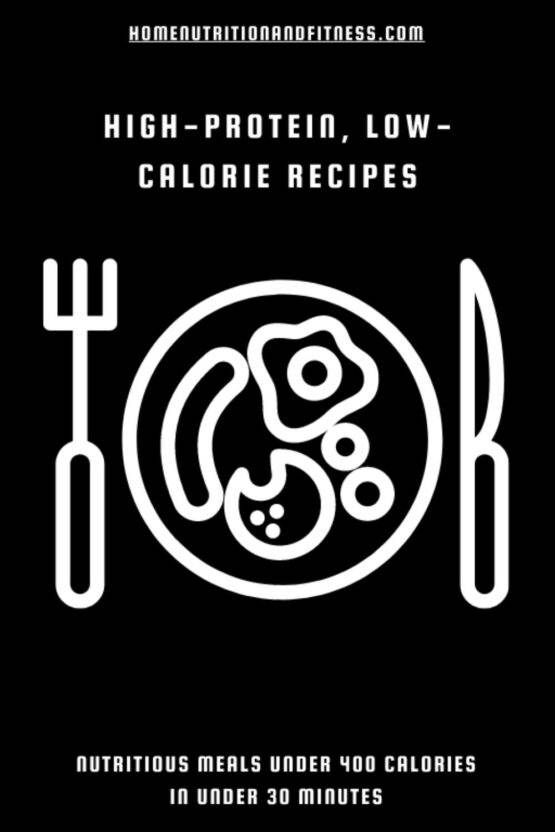The first time I took pre-workout was at University, just before a practical session (I have a Bachelor of Science Degree in Applied Sports Science in case you were wondering). Is that what they call a humble brag? Anyway…
I’d never taken it before but knew enough about it to know it was fine and safe. What I didn’t know was just how long it was going to last!
I spent forever staring at the ceiling of my room because I was still feeling the effects of the pre-workout I’d taken hours earlier!
I’m sure I’m not alone in this and wish I’d known then what I know now. Pre-workout can definitely mess with your sleep. However, follow these 12 tips and you’ll be sleeping like a baby in no time!
Supplementing with melatonin is one way of helping you get some much-needed sleep after your pre-workout drink. There are numerous other ways too, including using activated charcoal to help clear your body of caffeine, meditation, or simply reducing your overall caffeine intake. Non-stim pre-workout formulas which don’t contain caffeine are also available to those who don’t like the effects or are sensitive to caffeine.
Why Do You Have Trouble Sleeping After Taking Pre-Workout?
The main stimulating ingredient in pre-workout is caffeine. Some pre-workouts can contain up to FOUR times more caffeine than a cup of coffee! Is it any wonder you’re wide-eyed after a late-night gym session?! With the increased caffeine content of pre-workout, it can even be used for your morning energy boost in place of your usual coffee.
How Does Caffeine Keep You Awake?
Caffeine is one of the world’s most widely consumed stimulants mainly found in coffee and tea. It keeps you alert and relieves tiredness by blocking adenosine receptors in the brain. Adenosine is neurotransmitter that is part of the sleep-wake cycle by promoting sleep.
As well as blocking adenosine receptors in the brain, caffeine also promotes the release of dopamine and norepinephrine which enhance alertness and mood.
Caffeine also stimulates the release of adrenaline leading to an increase in heart rate and blood pressure.
The combination of blocked adenosine receptors, increased dopamine, norepinephrine and adrenaline results in an increase in energy and alertness. The effects can last for several hours and depend on the amount you’ve consumed.
So even a 2 p.m. pre-workout drink can leave enough caffeine behind at 10 p.m. to disrupt your sleep.
How Long Does 200 mg Of Caffeine Take To Wear Off?
The half-life of caffeine is somewhere in the region of 5 hours. This means that after 5 hours, you’ve still got 100mg of caffeine in your system. After 10 hours, you’ll have around 50mg in your body which is just less than a shot of espresso!
It can take 8-10 hours or more for caffeine to wear off and be fully metabolised by the body.
Can Pre-Workout Give You Insomnia?
In a word, yes!
Many pre-workout supplements contain between 150 and 400mg of caffeine in each scoop.
As previously mentioned, the half-life of caffeine is around 5 hours. Consuming a high amount of caffeine late in the day can leave a large concentration of caffeine in your body, preventing you from falling asleep.
How Long Before Bed Should I Take Pre-Workout?
This depends on the amount of caffeine in each serving. Each pre-workout brand has differing levels of caffeine per serving so it’s important to know just how much you are getting in each scoop. As a general guide, you want to take your pre-workout at least 6 hours before bedtime.
Given the 5-6 hour half-life of caffeine, this gives enough time for enough of the stimulant effects to wear off so it won’t disrupt your sleep.
Now let’s look at some solutions to help you wind down and sleep better after taking pre-workout!
4 Supplements To Help You Fall Asleep After Taking Pre-Workout
Some key supplements can help relax both the body and mind after an intense training session with pre-workout.
Melatonin
Melatonin is a naturally occurring hormone that regulates the sleep-wake cycle and circadian rhythm. It’s sometimes referred to as the sleep hormone as it helps to induce sleep when released into the blood.
Production of melatonin is triggered by darkness. As our environment gets darker, the pineal gland in the brain releases melatonin which signals to the body it is time to sleep.
The standard dose is 2mg taken 30-60 minutes before bedtime with the maximum recommended dose being 10mg per day.
Above this quantity is not recommended as it can cause daytime tiredness, headaches and dizziness.
In some countries, melatonin is only available on prescription. In any case, it would be beneficial to speak to your doctor before taking any melatonin supplements.
Magnesium
Magnesium helps to relax the muscles and reduces tension and restlessness. It also helps to regulate neurotransmitter activity in the brain and can help reduce stress and anxiety.
It binds to and stimulates GABA (gamma-aminobutyric acid) receptors in the brain, slowing brain activity which helps us to relax. In addition, magnesium has been linked to an increased production of melatonin.
According to Women’s Health Magazine, a moderate dose of magnesium is around 100-350mg per day.
GABA
GABA acts as a neurotransmitter inhibitor which means it has a calming effect on the body by blocking stimulation of the central nervous system. It slows down brain activity, creating a calmer, more relaxed state.
It also contributes to slow-wave sleep, or deep sleep, which is associated with refreshing and restorative sleep.
GABA is used for the treatment of stress and anxiety by some but there is limited scientific evidence of it’s efficacy.
The most researched quantity of GABA is 100mg per day. It makes sense to assume that this should be the most effective for supporting sleep.
L-Theanine
L-theanine is an amino acid naturally found in green tea leaves.
It promotes alpha brain waves, associated with a state of being awake yet relaxed. This brings about a calm and alert sense of relaxation that can aid sleep.
When combined with caffeine, L-theanine takes away the jittery feelings caused by caffeine. Most pre-workouts contain L-theanine for this reason.
L theanine is known to increase levels of GABA and melatonin too.
Most pre-workouts already contain L-theanine so further supplementation is not usually necessary
8 More Ways To Help You Sleep Better After Pre-Workout
Aside from supplements, there are a few more actions you can take to help wind down naturally after pre-workout
Drink Water
Caffeine is a diuretic meaning it can cause you to become dehydrated. Couple that with physical activity and the chance of dehydration increases.
The best course of action here is to drink plenty of water to not only rehydrate your body but also help to flush your system of caffeine.
Staying hydrated can help minimise headaches or grogginess from pre-workout supplements. Aim for at least 16 oz water after.
Use Activated Charcoal
Activated charcoal has a porous texture with microscopic holes. It is not absorbed by the digestive system and remains unchanged after you consume it. Because of this, activated charcoal can attach itself to toxins by absorbing them. It then releases these trapped toxins through faeces instead of letting them get absorbed into the body.
As a result, activated charcoal has the ability to bind to caffeine molecules, removing them quickly from the body and has even been used in caffeine overdose cases.
Activated charcoal tablets are available over the counter and online. They’re available at Amazon or Holland & Barratt for example
Have A Warm Bath
An odd one but raising your core body temperature then cooling down tricks the body into feeling sleepy. Take a warm (not hot) bath 1-2 hours before bed.
Turn Off Blue Light Screens

Blue light is a wavelength of the visible light spectrum. It can influence alertness, hormone production, and sleep cycles by delaying the release of melatonin. Blue light is emitted by LED lights and many other electronic devices so it’s best to avoid phones, TV, tablets etc before bedtime.
Meditation or Yoga
There’s no set amount of time required to meditate. You can try it for just a few minutes, or do it for an hour. However, research does show that meditating for between 10 and 30 minutes may be more effective for helping sleep.
Take Your Pre Workout Earlier In The Day
To prevent pre-workout from causing sleeplessness, it is most effective to take it in the morning instead of the evening.
Many pre-workout supplements contain high amounts of caffeine to provide the necessary energy boost for intense physical training.
However, caffeine affects the nervous system by influencing the release of neurotransmitters like norepinephrine, dopamine, acetylcholine, and gamma-aminobutyric acid (GABA) which stimulates the mind and body.
The amount of caffeine and the quantity consumed determines how long it takes to fully metabolise. Having caffeine later in the day will ultimately lead to disturbed sleep.
As mentioned earlier, the half-life of caffeine is 5 hours on average. This means that a 200mg caffeine dose at 5 pm will still leave around 100mg in your body at 10 pm and even small amounts of caffeine remaining in the body have the potential to disrupt sleep.
Ideally, your pre-workout-fueled gym session should be scheduled in the morning. However, morning workouts are not always feasible. In this case, you can opt to exercise in the afternoon or early evening, allowing enough time for your body to metabolise the caffeine in pre-workout before bed.
This should be around 6 hours before bed to allow the caffeine to wear off.
Limit Your Caffeine Intake
The daily upper limit for caffeine intake is 400mg. A pre-workout drink can be anywhere between 150-400mg. Make sure you’re accounting for your coffees, energy drinks and sodas to avoid having excessive amounts of caffeine.
Reduce the number of cups of coffee or eliminate them altogether when taking pre-workout to avoid excessive caffeine intake.
Switch Your Pre-Workout To Non-Stim
If caffeine from pre-workout supplements is disrupting your sleep or you are sensitive to caffeine, consider switching to a caffeine-free, non-stimulant pre-workout. These can still boost energy, alertness, endurance, and circulation without caffeine.
They use ingredients like arginine, L-citrulline, agmatine sulfate, theacrine, and beta-alanine.
Non-stimulant pre-workouts are great for evening workouts since they are less likely to interfere with sleep.
Look for these ingredients in your stim-free pre workout:
Arginine
Arginine increases nitric oxide production, which enhances physical and mental performance, boosts blood flow, sharpens focus, and increases energy
L-Citrulline
L-Citrulline helps to elevate arginine levels for even further nitric oxide production. It is able to bypass the liver and converts to arginine in the GI tract so more can be utilised by the body.
Agmatine Sulfate
Agmatine sulfate prevents nitric oxide breakdown, extending its performance and energy benefits.
Theacrine
Theacrine is chemically similar to caffeine and enhances athletic performance, memory, cognition, and energy without caffeine’s drawbacks.
Beta-Alanine
Beta-alanine aids carnosine production, which improves muscle function and delays fatigue from lactic acid buildup.
How To Fall Asleep Faster
Other Melatonin-Related Questions
Here are a few additional questions regarding melatonin that may be useful to understand:
Why Do Bodybuilders Take Melatonin?
Melatonin helps maximize the release of human growth hormone at night during sleep which aids muscle growth and recovery. And of course, to reverse the affects of pre-workout.
Does Melatonin Affect Muscle Gains?
Indirectly, yes. Melatonin improves sleep quality which helps facilitate muscle repair and growth.
Can I Take Melatonin If I’ve Had An Energy Drink?
Your energy drink contains. Caffeine is a stimulant and therefore has the opposite effect of melatonin in your body, reducing its impact.
Does Melatonin Burn Fat?
In a study in Clinical Endocrinology, researchers suggested that melatonin could lower adipocyte mass while increasing lean muscle mass.
Does Melatonin Make You Tired The Next Day?
According to Healthline.com, it takes four to five half-lives for a drug to be fully eliminated. This means melatonin will stay in the body for about 5 hours. As long as you’re taking melatonin early in the evening, you shouldn’t experience a ‘hangover’.
How Do You Fix A Melatonin Hangover?
As well as timing your supplements intake, staying hydrated and getting sunlight in the morning can help avoid any “hangover” feeling.
Summary
The caffeine in pre-workout supplements is responsible for keeping you awake and alert. Taking your pre-workout late in the day can have a knock-on effect on your sleep and you could be awake for hours if you’re not careful.
However, there are ways to overcome this problem.
Supplementation with melatonin, magnesium, L-theanine or GABA can help your body to relax and reset the sleep-wake cycle.
Activated charcoal is an alternative option that will bind with any toxins (caffeine) in your body and remove them before they’re able to be metabolised. This method has even been used to treat caffeine overdoses. In addition, simple ‘hacks’ like meditation, a warm bath or turning off blue light screens like mobile phones will help naturally ease your body to sleep.
And of course, there’s the pre-workout itself. Rescheduling your workouts to earlier in the day will help to reduce the caffeine rush of pre-workout that stops you from sleeping. Switching to a caffeine-free pre-workout is also a viable option alongside reducing your overall caffeine intake.
Please let me know your thoughts in the comments







